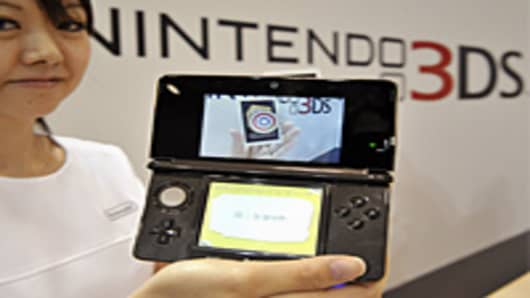"I have seen the strip miners and their entry into games. I have seen them exploit technology and new platforms not for the purpose of crafting beautiful creative works but rather taking the audience for all they can get," said designer Brenda Brathwaite. "Like you, we want good gameplay, we want compelling experiences, we want casual, and we want hardcore. We want to make a great game for the 43-year-old Facebook Mom, because — damn it — she deserves a great game, too.
"We are not the ones making what some of you call 'evil games' but rather the first … wave, the Marines storming the beach to take our medium, our culture, and our potential back."
While Nintendo, like Microsoft and Sony, has launched an online store offering smaller games that cost significantly less than major retail releases, the company has not shown interest in reaching out to the garage development community that is thriving on the iPhone and Facebook.
"I would separate out the true independent developer vs. the hobbyist," says Fils-Aime. "We are absolutely reaching out to the independent developer. … Where we've drawn the line is we are not looking to do business today with the garage developer. In our view, that’s not a business we want to pursue."
The company instead hopes to re-engage audiences with innovative technology and games that take advantage of that technology with the 3DS, which hits U.S. shelves on March 27. The system sold out quickly in Japan and is expected to do so here as well.
Nintendo, however, says it is determined to avoid the constant sell-out situation it faced with the Wii upon that system's launch.
"Our goal is not to have that situation," says Fils-Aime. "Our goal is to be able to meet the needs of every consumer beginning with Day One of the launch."



